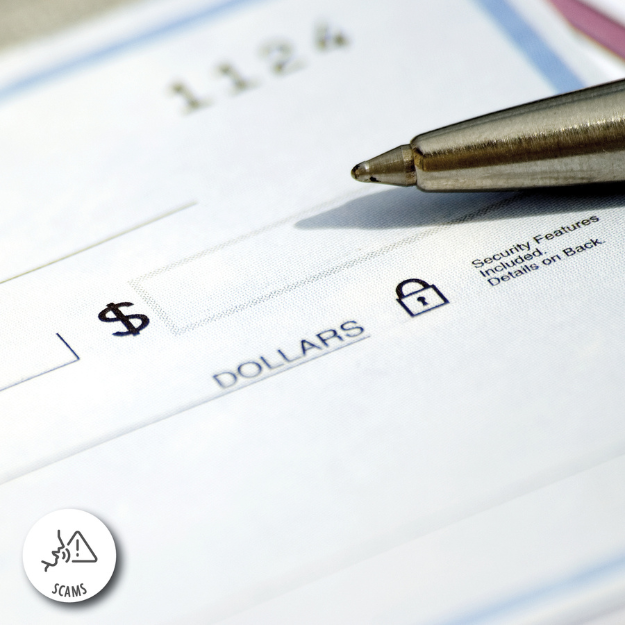Don’t Get Caught In a Paper Check Scam!

Don’t get caught in a paper check scam! Here’s some info, and how you can stay safe.
What is a paper check scam?
There are several variations of paper check scams. The most common forms include:
- Forged checks. Fraudsters forge the signature of the account holder to write unauthorized checks.
- Counterfeit checks. Fake checks are created to mimic real ones; complete with fabricated account and routing numbers. Scammers then use these bogus checks to pay for their purchases.
- Altered checks. A legitimate check is stolen and altered to change the payee and/or amount.
- Overpayment scams. Scammers send a fraudulent check for a higher amount than what’s owed, asking the recipient to refund the difference.
How to spot a fraudulent check
Identifying a fake or altered check can be challenging, but there are warning signs:
- Unusual payer information. Look for spelling errors, mismatched fonts or incomplete payer details on the check.
- Check number discrepancies. Legitimate checks have sequential numbering. A check with a low or no number, or one that doesn’t align with the issuer’s checkbook, can be a red flag.
- Poor print quality. If the check feels flimsy, has blurry text or looks off in any way, it could be fake.
- Too good to be true. If you get an unexpected check, especially for a large amount, be skeptical.
- Suspicious sender. A check from an unknown source, especially with vague instructions or additional requests, should raise alarm.
Protect yourself from paper check fraud
Here’s how to stay safe from check scams:
- Verify your check’s authenticity. If you receive a check from an unknown sender, call the issuing financial institution to confirm it’s legitimate.
- Secure your mailbox. Use a locking mailbox or take checks directly to the post office to prevent theft.
- Use check safeguards. Write checks using pens that have permanent ink to make it harder for fraudsters to alter.
- Switch to digital payments when possible. While checks are sometimes necessary, online payments with trusted services are often safer and faster.
If you’ve been targeted
If you believe you’ve been victimized by a check scam, report it to your credit union or bank as soon as possible. If the fraud involves a forged or altered check from your account, inform the original payee or issuer as well. Next, file a police report, especially if significant financial harm has occurred. You’ll also want to file a complaint with the FTC. Finally, if your personal information was stolen, monitor your credit for unusual activity.
Stay safe!

